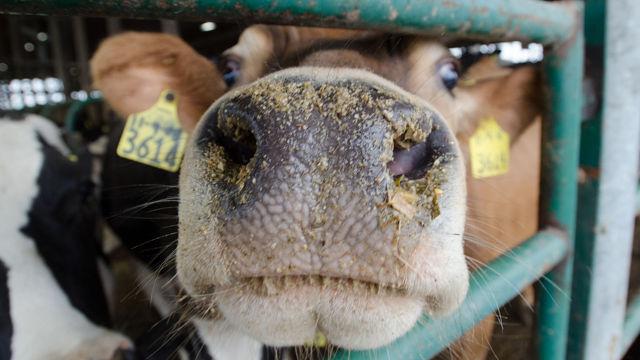-
Tips for becoming a good boxer - November 6, 2020
-
7 expert tips for making your hens night a memorable one - November 6, 2020
-
5 reasons to host your Christmas party on a cruise boat - November 6, 2020
-
What to do when you’re charged with a crime - November 6, 2020
-
Should you get one or multiple dogs? Here’s all you need to know - November 3, 2020
-
A Guide: How to Build Your Very Own Magic Mirror - February 14, 2019
-
Our Top Inspirational Baseball Stars - November 24, 2018
-
Five Tech Tools That Will Help You Turn Your Blog into a Business - November 24, 2018
-
How to Indulge on Vacation without Expanding Your Waist - November 9, 2018
-
5 Strategies for Businesses to Appeal to Today’s Increasingly Mobile-Crazed Customers - November 9, 2018
Is Organic More Nutritious? New Study Adds To The Evidence
There are about 50% more omega-3 fatty acids in organic milk and meat than in conventionally produced ones, according to large scale studies.
Advertisement
Half a litre of organic, full-fat milk or its equivalent in other dairy products, for example, was found to provide 16% of the recommended daily dose of so-called long-chain omega-3, while conventional milk provides 11%.
Nutrition experts disagree on the extent to which organic foods confer health advantages, whether through the avoidance of pesticides and other chemicals, or differences in the edibles themselves. Conventionally “farmed” products simply do not offer the health benefits, the organically produced ones can, adds the study conducted by scientists from multiple nations.
However because there were more studies on dairy, the researchers were able to determine that organic milk contained 58% more EPA and DHA than conventional milk.
They were able to distinguish organic produce to non-organic on the basis of omega-3 fatty acids.
Leifert led the studies on meat and milk, published this week in the British Journal of Nutrition.
However, conventional milk has 74 percent more of the essential mineral iodine and slightly more selenium, the study authors pointed out. Team leader Carlo Leifert said, “People choose organic milk and meat for three main reasons: improved animal welfare, the positive impacts of organic farming on the environment, and the perceived health benefits”.
Modest gains in omega-3 from going organic must also be weighed against the potentially negative effects of saturated and trans fats also found in dairy and meat, others point out. The investigators discovered that organic products provide higher levels of beneficial fatty acids, certain essential minerals and antioxidants.
A new study shows that organic milk and meat is better, but forget that eating vegan is even better than that.
Gillian Butler, co-author and senior lecturer in animal nutrition at Newcastle University, explains: “There is a relatively narrow margin between dietary Iodine deficiency ( 500 µg/day) from our diet which can lead to thyrotoxicoxis”. These fats have been linked in the past to an increased risk of heart disease.
“Optimizing iodine intake is therefore challenging, since globally there seems to be as much concern about excessive rather than inadequate intake”, she adds. National Diet and Nutrition Survey data (NDNS) suggest that milk and dairy products supply between 31-52% of iodine in the United Kingdom diet. Based on results from the study, half a liter of milk would provide 53% of and 88% of the daily recommended intake from organic and conventional milk respectively. “This is especially true for pregnant women, for whom iodine is a critical nutrient to ensure the healthy development of their baby”.
In a previous study, the same research team found that organic crops and organic crop-based foods have up to 60 percent more key antioxidants and lower levels of the toxic metal cadmium than conventional crops.
Advertisement
“Following research in 2014 confirming nutritional differences between organic and non-organic crops like fruit and vegetables – we can now say for certain that organic farming makes organic food different”.





























